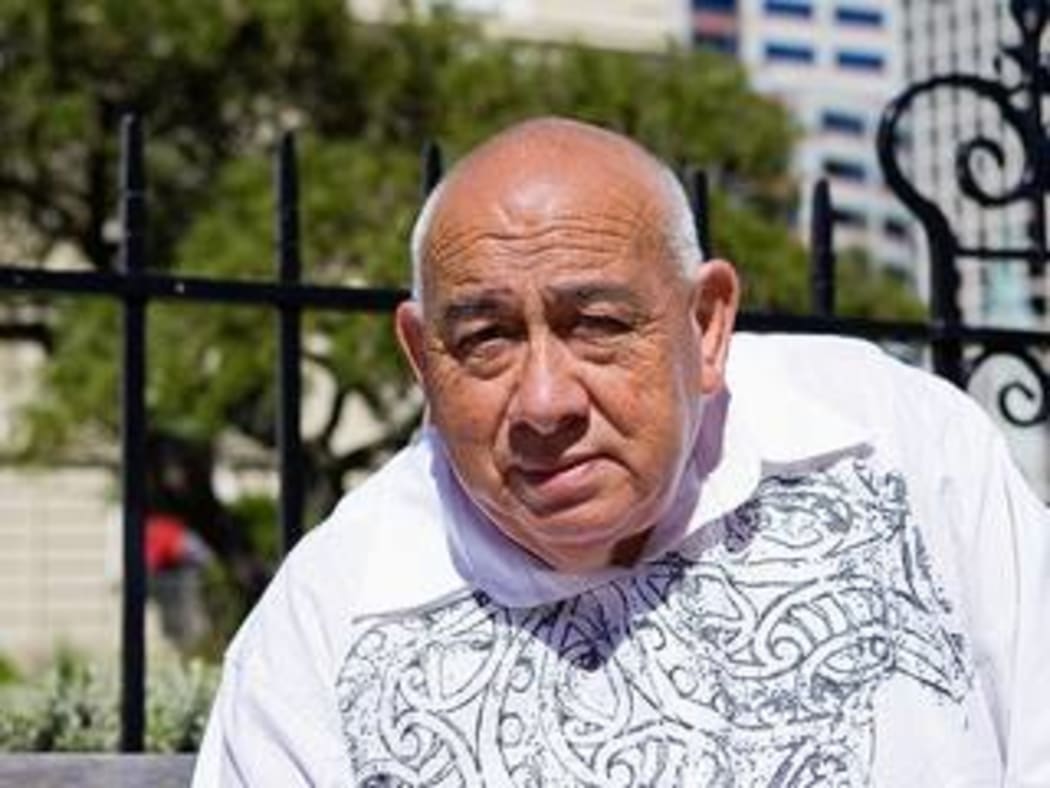Wellington Māori leader Sir Ngātata Love has died, his family have confirmed.

Wellington Māori leader Sir Ngātata Love has died. Photo: Facebook / Ngatata Love
Ngātata Love, 81, died on Wednesday in his Korokoro home.
He lead Te Puni Kōkiri, the Ministry of Māori Development, and was an Emeritus Professor at both Massey University and Victoria University of Wellington.
He was a former leader of the iwi organisation, the Wellington Tenths Trust and of the Port Nicholson Block Settlement Trust.
Ngātata Love was found guilty in 2016 of obtaining property by deception in the High Court in Wellington and was sentenced to two years and six months' imprisonment - he served less than a year.
He was released on parole a year ago.
A memorial service will be held this Sunday.
Sir Wira Gardiner, a long time friend of Ngātata Love, told Morning Report the sentencing was "a small part" of his friend's life, which included achievements in several fields and the pursuit of social justice.
"When his lawyers were looking for people to speak to his character, I had no hesitation in standing even though there are some of my friends who should've stood but didn't," Sir Wira said.
"To be frank with you, I think he died of a broken heart. It's not good for a man of his standing, whose whole life had been committed to social justice, to righting the wrongs, to [then] go to prison and ... having to declare bankruptcy would've been that last straw for a man of his character and a man of his long-standing commitment to the community."
Sir Wira said his friend was happiest as an educator and they often discussed ways to encourage more students into university.
"He was pretty much a humanist and an enabler of opportunities, particularly for students.
"I know a generation of students, or maybe several generations, were thankful Ngātata was the chair of the Palmerston North Trust that he built some houses and put students in those houses who otherwise might've found it difficult to find accommodation."
Despite being involved in several fields, Sir Wira said Ngātata Love didn't publicly seek acclaim for his efforts and achievements.
"He was committed, he was passionate, he was diligent.
"He was a pretty humble sort of guy. He had all these accolades that he could walk along and collect but he really wasn't one of those people that pushed themselves out there so when we went to a marae he always sat back from the front."
His background in politics, including his father's role as a private secretary in parliament and involvement in the Labour Party, influenced him at an early age to think of social development and justice.
"You can't help it if you're a kid travelling in those kind of circumstances, to pick up the kind of challenges in the '30s, '40s and '50s and then begin to click it open when you are able to.
"You can choose any part of his life and you can be sure that it'll be something complex, it'll be a challenge and he would've enjoyed putting his significant intellectual capacity to resolving it."
Sir Wira said it was unfortunate that the politics got in the way of Ngātata Love's "closing the gaps" initiative and didn't succeed as much as it could have.

